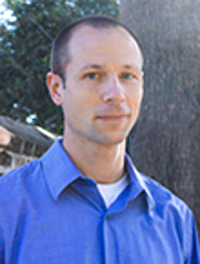
- This event has passed.
Jesse Dean – Rehabilitation Engineering
August 25, 2017 @ 12:00 pm - 1:00 pm
Coulter Seminar Series Presents
Rehabilitation Engineering

Jesse Dean, Ph.D.
Associate Professor
Division of Physical Therapy
Medical University of South Carolina
The seminar will be on Friday, August 25 at 12:00 in 321 MacNider Hall UNC-CH.
Video conference available: 4142 EBIII, NC State & ECU
Jesse Dean is an Associate Professor in the Division of Physical Therapy at the Medical University of South Carolina (MUSC). His research program focuses on: 1) identifying the strategies that healthy, uninjured humans use to generate stable, efficient movement patterns; 2) investigating how these control strategies change in individuals with neurological injuries; and 3) developing novel intervention methods to address the mechanisms underlying altered motor control.
Jesse attended the University of Delaware as an undergraduate, majoring in biology and physics. He then received master’s and doctorate degrees in Biomedical Engineering from the University of Michigan, using model simulations and experiments to investigate the interaction between passive mechanics and active control during human movement. Jesse moved to the Centre for Neuroscience at the University of Alberta as a postdoctoral fellow, where his research focused on the role of sensory feedback in contributing to motor control. Since arriving at MUSC, Jesse has worked on applying his biomechanical and neurophysiological expertise to an improved understanding of post-stroke function.
Abstract
Following a stroke, functional mobility is often limited by an increased fall-risk and fear of falling. Unfortunately, recent large-scale trials focused on balance and strengthening, multifactorial fall prevention, and locomotor training have failed to effectively address this problem. Based on these failures, it seems that optimal restoration of post-stroke function will require a stronger mechanistic understanding of the underlying causes of gait instability.
Our long-term goal is to develop a toolbox of mechanism-based interventions for improving post-stroke gait instability, from which clinicians can select the most appropriate option for individual patients. This presentation will focus on our recent work investigating a biomechanical approach to quantifying and improving gait instability. We have found that many chronic stroke survivors do not adjust their foot placement based on their body’s center of mass mechanics, thus putting themselves at risk for internally-generated mechanical errors. Providing targeted mechanical assistance or perturbations during walking shows promise for restoring the use of this stabilizing strategy.